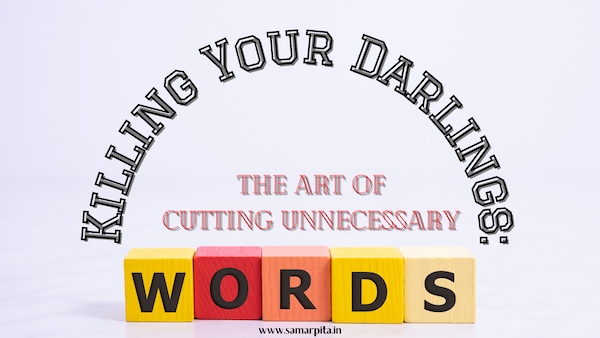As writers, we often become attached to our words and sentences. We spend hours crafting the perfect phrase, only to find that it doesn’t quite fit into our writing as a whole. It can be difficult to let go of these beloved “darlings”, but sometimes it’s necessary in order to create a stronger piece of writing. In this blog post, we’ll explore the art of cutting unnecessary words and how it can improve your writing.
Also Read: In-Depth Editing: Strategies for Comprehensive Reviews
Why Is This Important?
When we write, we often use more words than we need to convey our message. These unnecessary words can clutter our writing and make it more difficult for readers to understand our message. By cutting these words, we can create a more streamlined and effective piece of writing. Here are some specific reasons why cutting unnecessary words is important:
- Improves Clarity: When we remove unnecessary words, our writing becomes clearer and easier to understand. This is especially important when writing for a wide audience.
- Increases Readability: A cluttered piece of writing can be difficult to read, causing readers to lose interest. By cutting unnecessary words, we can improve the overall readability of our work.
- Enhances Conciseness: Concise writing is more effective than long-winded writing. By cutting unnecessary words, we can create a more concise piece of writing that packs a stronger punch.
- Streamlines the Message: Cutting unnecessary words can help to streamline our message, allowing readers to focus on the most important points.
Also Read: Freelance Editing: How to Get Started
Tips for Cutting Unnecessary Words
Cutting unnecessary words can be a difficult task, especially when we’re attached to our writing. Here are some tips to help you get started:
- Read Your Writing Aloud: Reading your writing aloud can help you identify areas where you’ve used too many words. When you hear your writing out loud, it’s easier to identify areas where your sentences are too long or repetitive.
- Identify Repetition: Look for words or phrases that are repeated throughout your writing. Consider using a thesaurus to find alternative words that convey the same meaning.
- Simplify Your Sentences: Break up long sentences into smaller, more manageable ones. This can help to clarify your message and make your writing more concise.
- Eliminate Filler Words: Look for words that don’t add any meaning to your writing, such as “really”, “very”, or “just”. These words can be eliminated without changing the overall meaning of your writing.
- Cut Unnecessary Adjectives: While adjectives can add color to your writing, too many can make it cluttered. Consider cutting back on unnecessary adjectives to create a more streamlined piece of writing.
Also Read: Social Promotion Activities Every Blogger Should Do
In conclusion, this step is an important part of the writing process. By streamlining our message and creating a more concise piece of writing, we can improve the overall effectiveness of our work. While it can be difficult to let go of our beloved “darlings”, it’s necessary in order to create the strongest piece of writing possible. By reading our writing aloud, identifying repetition, simplifying our sentences, eliminating filler words, and cutting unnecessary adjectives, we can create a piece of writing that is clear, concise, and effective.
This post is part of #BlogchatterA2Z challenge
***
If you are looking for an excellent manuscript editor, someone to create content for your business, or an expert to help build your personal or professional brand on social media, then look no further and connect with me at editor@samarpita.in I can be followed on instagram at @samarpita and on twitter at @samarpitadotin.
***********
Read my ebook WRITE. EDIT. PROMOTE. to learn the basics about becoming an author – from writing your own book, to editing your first draft, and to promoting your book yourself! You can also read my ebook How To Write A Story Effectively and learn some valuable lessons about how a story can go from average to extraordinary. This book is part 1 of the series.
In fiction, I have two short stories for children in an ebook called Bedtime Stories.

